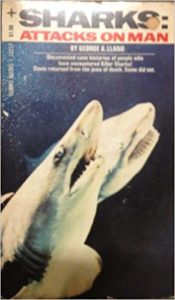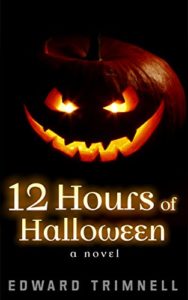When I was a kid, I went through various phases with hobbies, interests, and obsessions.
One of these was my “shark phase”. For about a year, I read every book about sharks that I could get my hands on.
I still have a passive interest in sharks. Sharks are awe-inspiring creatures. I mean, just think about it: A shark is a fish that, even now, in the 21st century, will eat you if given the opportunity.
My interest in sharks has occasionally shown up in my fiction. (There is a shark story in my Hay Moon short story collection.) And I’m still a sucker for Shark Week on the Discovery Channel.
But back to that childhood obsession with sharks. While poking around on Amazon, I recently came across a listing for the book, Sharks: Attacks on Man, by George A. Llano. Published in 1975, the book is long out of print; but there are still some old used copies floating around.
I owned a copy of this book around 1979. I read it and reread it. Included in this slender volume were stories of the Matawan Creek shark attacks of 1916, and the harrowing experiences of the sailors of the USS Indianapolis, who had to contend with man-eating sharks after their ship was sunk by the Japanese.
There are probably better books about shark attacks on the market today (and certainly more current ones). Nevertheless, I’ll always look back fondly on George A. Llano’s Sharks: Attacks on Man, which provided me with many hours of entertainment about forty years ago.



